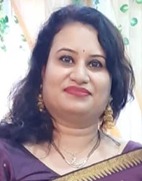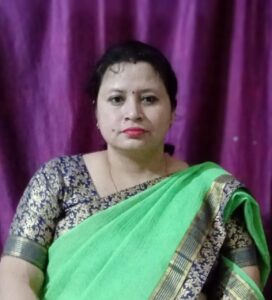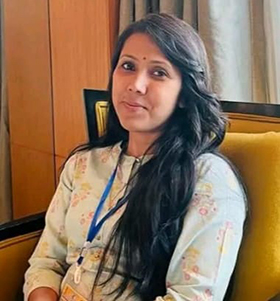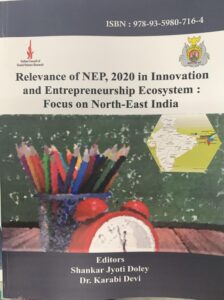The Department of Mathematics & Statistics launched its journey in 1972 i.e., from the establishment of the college under the visionary leadership of Late PunaramNeog, the Founder Principal of the college. The course began under the guidance of the founder faculty member Late Debeswar Baruah.
Faculty List of the Department
| Name of the Faculty | Period of Service |
| Late Debeswar Baruah. M. Sc. (Mathematics), M. Phil.
(Founder faculty) |
1972- 2008 |
| Dr.Naren Biswas, M.Sc.(Statistics), Ph. D. | 1981-1983 |
| Dr.Poresh Borah, M.Sc.(Statistics), Ph. D. | 1984-1985 |
| Mr.TuaKantaSaikia, M.Sc.(Statistics), M. Phil. | 1985-2019 |
| Mrs. TulumoniGogoi, M. Sc. (Mathematics) | 2008 – Cont. |
| Dr. Karabi Devi, M.Sc.(Mathematics),
Ph. D. (JRF -CSIR) |
2009- Cont. |
| Dr. Laba Handique,M.Sc.(Statistics), Ph. D. | 2020-2021 |
| Dr. Rinku Saikia, M.Sc.(Statistics), M. Phil., Ph. D. | 2022-Cont. |
At present the department operates under the dynamic leadership and guidance of Dr. Karabi Devi, Head of the department and the co-operation of the other faculty members Dr. Rinku Saikiaand Mrs. TulumoniGogoi.
Vision
Creating a congenial environment to learn mathematical design and to use Mathematical knowledge for problem solving
Mission
- To work towards transformation of young people to component and motivated professionals with sound theoretical and practical knowledge.
- To inculcate in students the ability to apply mathematical and computational skills to model, formulate and solve real life application
- To make the students capable of discharging professional, social and economic responsibilities ethically.
OBJECTIVES
- Develop a positive attitude towards learning Mathematics
- Think and reason precisely, logically and critically in any given situation
- Develop investigative skills in Mathematics
- Appreciate the role, value and use of Mathematics in society
- Identify, concretize, symbolize and use mathematical relationships in everyday life
- To teach the essentials of mathematics for non mathematics students as a crash course
Best Practices
- Involve students in collaborative work- such as to prepare departmental wall magazine, department Bulletin and they are given the full freedom to prepare it at their own choice. We have seen that this create their love and confidence towards the subject.
- We arrange Workshops on “Mathematical Reasoning “ and “Quantitative Aptitude “ to guide students for various competitive examinations.
- We take remedial classes.
- We have a Question Bank in the department.
Long Term Goals
- To enhance the mind set towards research and creation of new knowledge
- To create innovations in the field of Mathematics
Short Term Goals
- To design special short term course and to conduct programmes so as to make our students employable and entrepreneur
- To make our students efficient for higher studies and work beyond the syllabus
- To promote Research Works in Mathematics and Statistics
PROGRAMMES OFFERED
| SL NO. | COURSES | Semester |
| 1 | Bussiness Statistics | B. Com 3rd Semester (CBCS) |
| 2 | Bussiness Mathematics | B. Com 4th Semester (CBCS) |
| 3 | Bussiness Mathematics & Statistics | B. Com 2nd Semester, Non-Honours (CBCS) |
| 4 | Bussiness Mathematics | B. Com 5th Semester (Semester System) |
| 5 | Statistics | M.Com 1stSemester (CBCS) |
| 6 | Research Methodology | M. Com 2nd Semester (CBCS) |
| 7 | Mathematics | Higher Secondary (Arts and Commerce) |
| 8 | Bussiness Mathematics & Statistics | Higher Secondary (Commerce) |
Add-on Course :“Mathematical Reasoning for Competitive Examinations” for undergraduate students
FACILITIES OF THE DEPARTMENT:
- Department has the computer facilities for the teachers and the students.
- Department has its own library and provide the students reference books.
MODERN TEACHING METHODS APPLIED:
The faculty members of the Department undertake various measures such as :
- Use of ICT
- Seminars and Group Discussions.
- Home Assignments
- Sessional Examinations etc.
TEACHERS’ PARTICIPATION IN MENTORING THE STUDENTS:
All the faculty members of the department have given a group for mentoring the students. The students can contact to their respective mentors whenever and wherever they face any problem regarding academic as well as non- academic matters.






Follow Us!